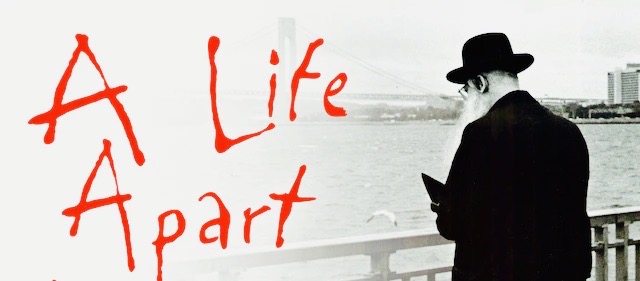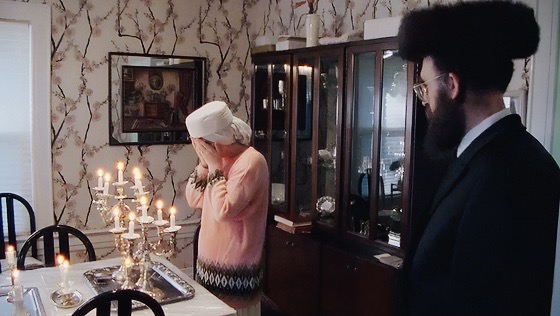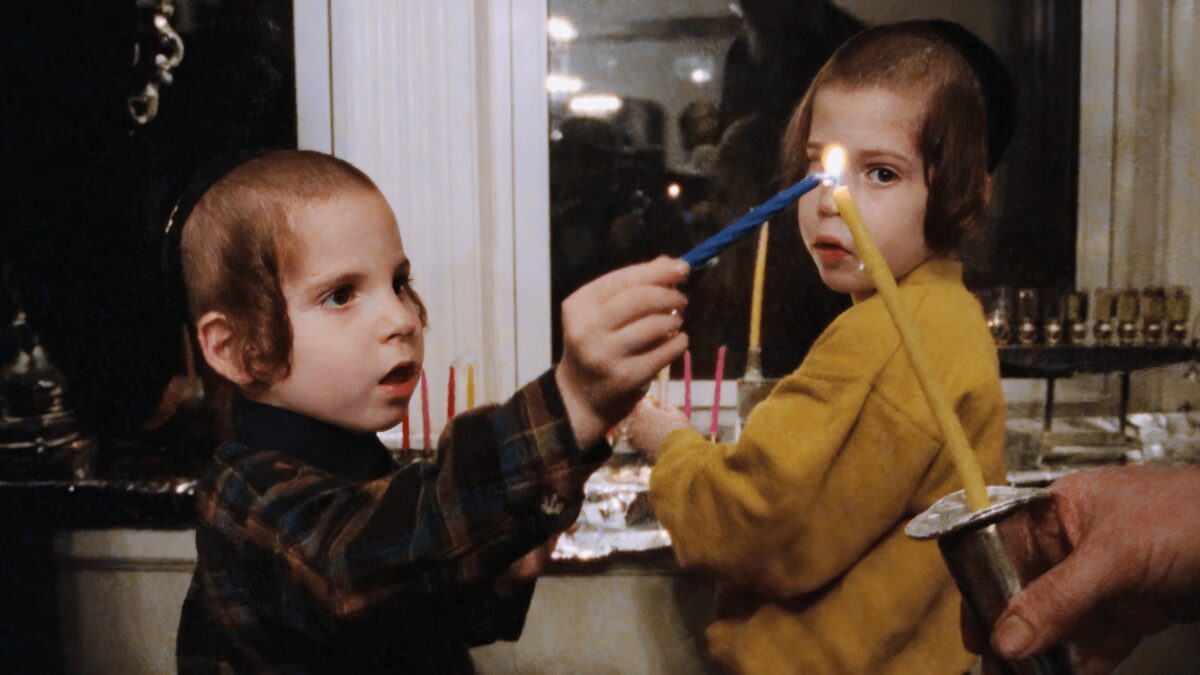They are a minority-within-a-minority.
Regardless of where they live, Hasidic Jews dwell on the periphery of societies, hewing to changeless values and norms and uncompromisingly refusing to blend into their surroundings.
Hasidim are the subject of A Life Apart, an intriguing documentary by Menachem Daum and Oren Rudavsky now available on the ChaiFlicks streaming platform. Followers of a pious and mystical religious sect that emerged in 18th century Eastern Europe, they have been outliers ever since then.
Focusing on the Hasidic community in the United States in general and in New York City in particular, this film was released in 1997. Nevertheless, it is remarkably fresh and relevant, underscoring the directors’ thesis that the Hasidim inhabit a timeless universe and are immune to the march of time.

One of the first documentaries to examine their particularistic lifestyle and beliefs, it unfolds against the backdrop of interviews with acolytes and academics who have studied the path they have taken. The Hasidic sects under review range from the Bobovs and the Samars to the Gers and the Lubavichers.
What becomes abundantly clear very soon is their absolute aversion to popular culture and their refusal to join the mainstream. This is an immutable truism whether they reside in Israel, Canada, Belgium, Britain or the United States.
Preferring their own company and keeping to themselves as the ultimate outsiders, they eschew television, movies, theater and sports.
Not surprisingly, their distinctiveness is sometimes equated with arrogance and aloofness. Consequently, their behavior arouses a measure of curiosity, suspicion and resentment in non-Jewish circles, say the filmmakers, who are generally sympathetic to the Hasidim.
Founded by Israel Ben Eliezer, known as the Baal Shem Tov (1700-1760), Hasidism began as a spiritual revival movement which spread its teachings through story telling. Accused of heresy by some Jews, the Hasidim flourished, especially in Poland, Romania and Hungary.
Nonetheless, the movement lost some of its practitioners to Zionist, socialist and communist groups in the late 19th and early 20th centuries. More recently, their cloistered and rigid lifestyle has caused disillusionment and prompted a few Hasidim to leave and adopt a secular way of life. Daum and Rudavsky introduce viewers to one such person, an articulate woman who has a tenuous connection to her former community.
Until about World War II, few Hasidim resided in the United States, which was widely seen as a “trefe” nation whose culture was at odds with their lives. While they realized that deep-seated antisemitism in Europe might endanger their communities, they feared that they would lose their souls in a modern country like the United States, where assimilation was the norm.
Their calculations were egregiously wrong. During the Holocaust, four out of five Hasidim were murdered by the Nazis and local collaborators.
The first Hasidic Holocaust survivors arrived in the United States in 1946 and were usually indistinguishable in appearance from other new immigrants. They immigrated not in search of the American Dream but out of a desire to rebuild their insular communities along traditional lines. They did not want to be swallowed up by America.
Rebbes, or charismatic rabbis, lead their flocks. The bond between a rebbe and his followers is never broken, even long after his death. As in the past, obedient disciples turn to them for guidance and advice. “Everything in our life is based on what the rebbe thinks,” says a woman in Williamsburg, one of the neighborhoods in New York City where Hasidim are concentrated.

Very family-oriented, Hasidim send their children to parochial schools and limit themselves to jobs and careers that do not interfere with their lifestyle. They believe that universities are impure because they are secular, receptive to new ideas, and encourage male/female mingling.
Marriages are arranged by matchmakers, romantic love is considered disruptive, and women are expected to find fulfillment as mothers. Typically, Hasidic families are big, often creating economic hardship for many families.
A Life Apart leaves a viewer with the message that Hasidic Jews are an island on to themselves and will remain so for eternity.
